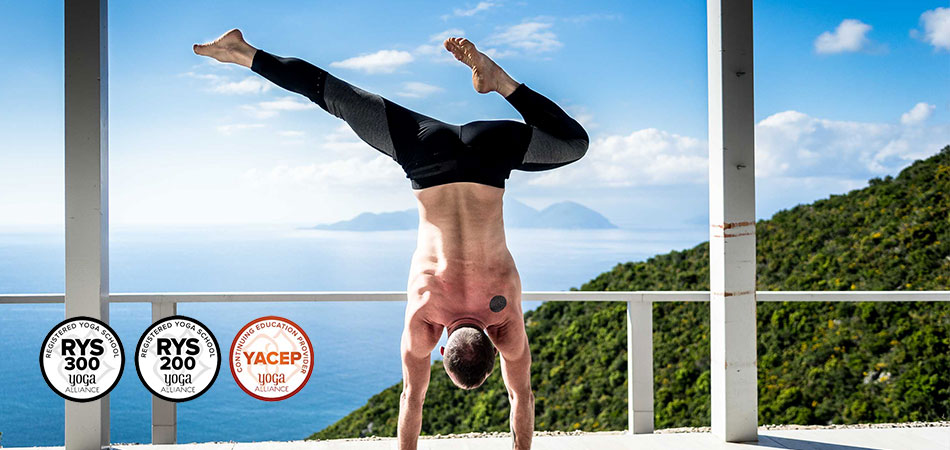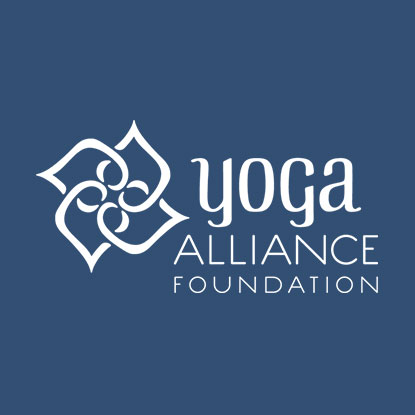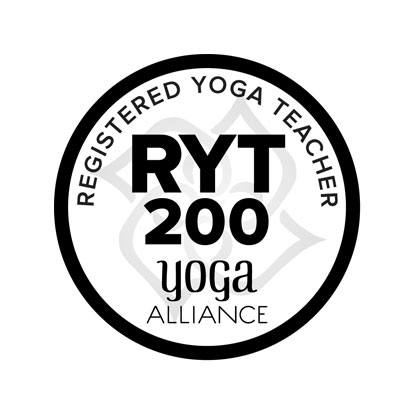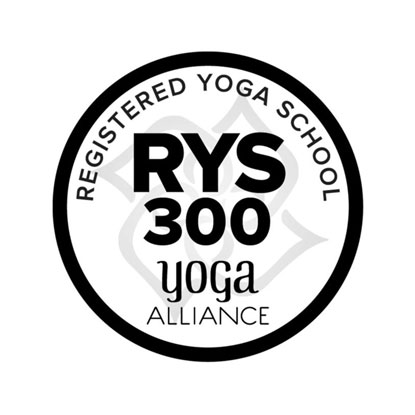
Simply speaking, The Yoga Alliance is the organization that awards stamps/logos to ‘registered’ Yoga Schools (RYS) and “registered” Yoga Teachers (RYT). More on this shortly.
If Yoga schools' names and yoga teachers' titles mean nothing, then why is it important that you attend a school with Yoga Alliance approval?
When it comes to Yoga Alliance, or any attempt to standardize Yoga for that matter, some people are supportive, other people are skeptical.
We cannot, nor would we want to, give you a black-and-white, hard-and-fast, answer to the value of Yoga Alliance. What we will offer instead, is a number of perspectives that we hope will support you in making an informed decision.
In an ideal world, names and titles should mean nothing when you choose a yoga teacher. You would choose them based on their skills and commitment to Yoga. But this isn’t how the world works, not yet anyway. Check out our teachers.
If time and money were no issue, you would have no trouble selecting a Yoga School. Plus, you would not worry too much if you chose wrong. But these courses require a significant investment in both time and money. Therefore, you cannot afford to make a poor choice.
Learn how to choose a yoga teacher training that's right for you.
What if we told you that there was 1 thing to look for? One title, one badge, that would give you a degree of certainty when selecting the right course for you?
We have attended our fair share of Yoga Schools, some great, others questionable. Whether you choose to join Alpha Yoga School or not, our hope is you do not make the same mistakes that we did.
Do you want to deepen your yoga practice?
What does Yoga Alliance DO?
According to recent statistics around 5% of the total population of the Earth practices Yoga. For context, that is 300 Million humans practicing a tradition that spans back over 5,000 years.
The mission of Yoga Alliance is a huge (others would say impossible) task:
To establish a minimum standard for Yoga Schools around the world.
Yoga Alliance US was established in 1999 in an attempt to protect, some say profit from, Yoga and its popularisation in the West.
One of their decisions was to give all Yoga courses the same title, “Yoga Teacher Training”. Before this, the courses were called; Foundation Yoga Course, New to Yoga, Fundamentals of Yoga, How to Practice and Teach Yoga, or Beginners Yoga course” to name just a few.
Yoga Alliance works in two ways; approving Yoga Schools and registering Yoga Teachers.
Yoga Alliance only approves schools whose curriculum meets their 'standards’. These standards include which topics are taught and how many hours teachers spend teaching them. Upon approval, the school is granted the title “Registered Yoga School (RYS)”.
You might also like to read: Reasons why people don't book a Yoga Teacher Training
What is Registered Yoga School (RYS)?
Upon completion of your Yoga course, you will receive a certificate. Although there is no formal nor universal Yoga qualification, this certificate will suffice in allowing you to teach Yoga.
Some certificates will have the stamp "RYS", which stands for Registered Yoga School. Others will not.


What Yoga Alliance is NOT!
As far as we know, the Yoga Alliance does not send undercover agents, disguised as Yoga students, to check out the quality of training. Even if they did, they could never check them all. Or maybe they do, and they do an excellent job of going unnoticed…
The Yoga Alliance works on an honor-based system. Therefore they cannot guarantee that the school will teach exactly the curriculum which they submitted. However, you have to wonder, would a school go to the lengths of creating a curriculum, submitting it, and not bother to teach it?
Ultimately, The Registered Yoga School title is based on the number of hours spent teaching specified topics. It cannot guarantee the quality of exactly what is taught in class.
You might also like: 5 reasons why every yoga teacher should take a 300-hour yoga course
Do Yoga Schools have to be part of the Yoga Alliance?
Simple answer, no.
Unlike becoming a Doctor there is no single, agreed-upon, gold standard for teaching Yoga. Unlike a medical license, YA is voluntary, not mandatory.
Some schools in the world, out of choice or necessity, are conducting training not certified by the Yoga Alliance.
These schools may deliberately create a curriculum knowing that it doesn’t meet Yoga Alliance criteria. Perhaps they want to focus a larger proportion of time on alignment at the expense of philosophy. Maybe they want to teach more philosophy at the expense of teaching methodology. Some schools may have difficulty paying the $400 application fee and $250 annual membership.
You might also like: How yoga can help build mental health
Are Yoga Schools that are approved by the Yoga Alliance better than those that are not approved?
There is no simple answer for this one, unfortunately.
It depends on what you mean by better.
If by better you mean a degree of certainty in your already very big decision, then yes. By attending a Yoga Alliance registered school you can be certain the course curriculum and the qualifications of the teachers have been approved.
Anyone who has gone through the process of approval knows it takes a substantial investment of money, time, and effort. This could be seen as evidence of the schools' commitment and confidence in their courses. The main reason schools apply for approval is because their students claim that it is important to them.
To receive Registered Yoga School status a school must demonstrate they have met the curriculum requirements and submitted their teaching qualifications. The new standards from YA will require that the lead teacher has E-RYT 500 status. An E-RYT (Experienced Registered Yoga Teacher) has documented over 2,000 teaching hours and attended at least 500 hours of training as a student.
In a rare case, such as ours, schools have to dispute their choice to offer two styles (as opposed to just one as instructed by the YA alliance). We won the argument by the way.
Thinking more long-term, some studios require that their teachers attend schools certified by The Yoga Alliance. Therefore, in the context of employment prospects, a YA-approved school would be better.
If you want the ability (now, or in the future) to register with Yoga Alliance, to use the title Registered Yoga Teacher, then yes, a school that is YA approved is important. If you can see yourself leading your own training one day, approved by the Yoga Alliance, then yes, a school approved by the YA would be better.

All other schools, not approved by the YA, are worse.
It would be a mistake to presume that all schools, not approved by the YA, are worse than those which are. However, with YA approval you can be sure that the school has had their curriculum AND their teachers verified.
Although not perfect, The Yoga Alliance is attempting to bring some consistency to the experience of learning and teaching Yoga. They are also trying their best to eradicate or, at least, help you avoid inadequate Yoga training.
While some will complain that Yoga should not be standardized others will see the value in creating a structure. This is especially true for 200-hour foundational yoga training where the specifications set by The Yoga Alliance mean all students should come out with a basic, but well-balanced, overview of Yoga.
What to look for?
The Yoga Alliance badges look like the ones in this article and schools should post them clearly on their websites.
We hope you enjoyed this knowledge and learned something new that will make it easier to make more educated decisions when choosing your yoga school.
Martin and Joanna
Alpha Yoga School
...where you take your personal yoga practice to a whole new level while doing it correctly and safely and where you learn skills necessary to become an exceptional yoga teacher to whom students love to return for more.
You are interested in becoming a yoga teacher or do you want to perfect your teaching skills?
Please find out more about our 200hr yoga teacher training in Europe and India and our 300h advanced yoga teacher training in Europe.
9 Critical Tips on Picking Your YTT: INSIDER SECRETS







 Learn how to create a yoga class for your own practice
Learn how to create a yoga class for your own practice